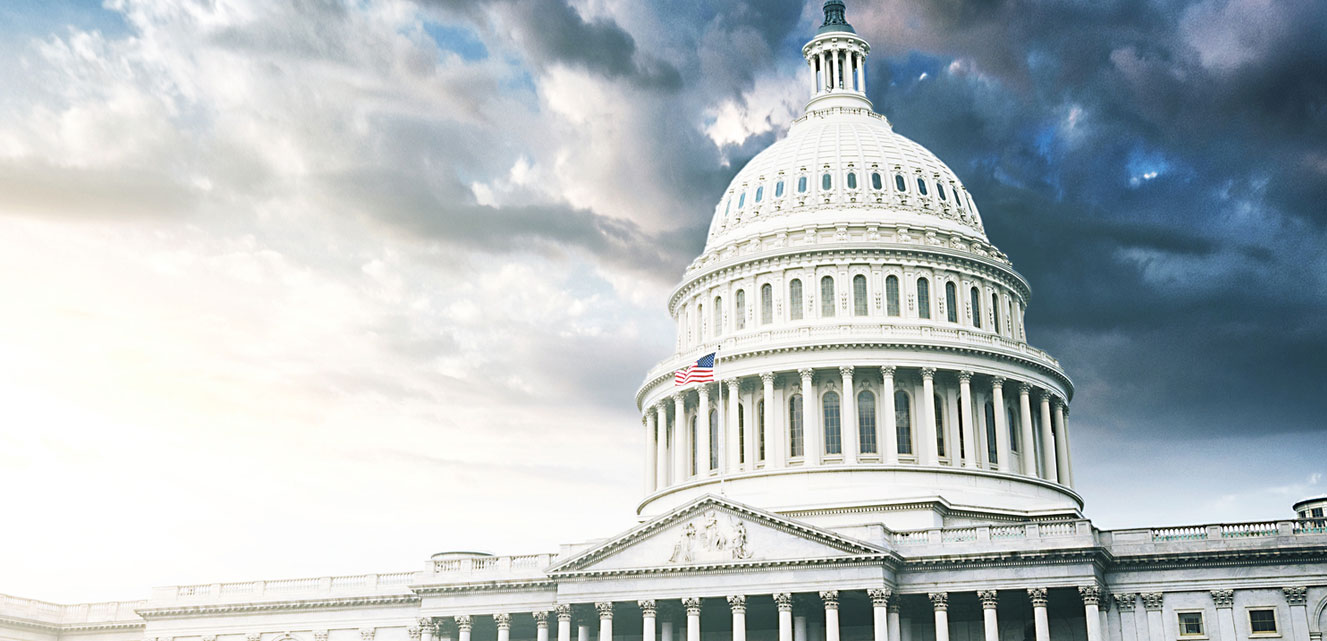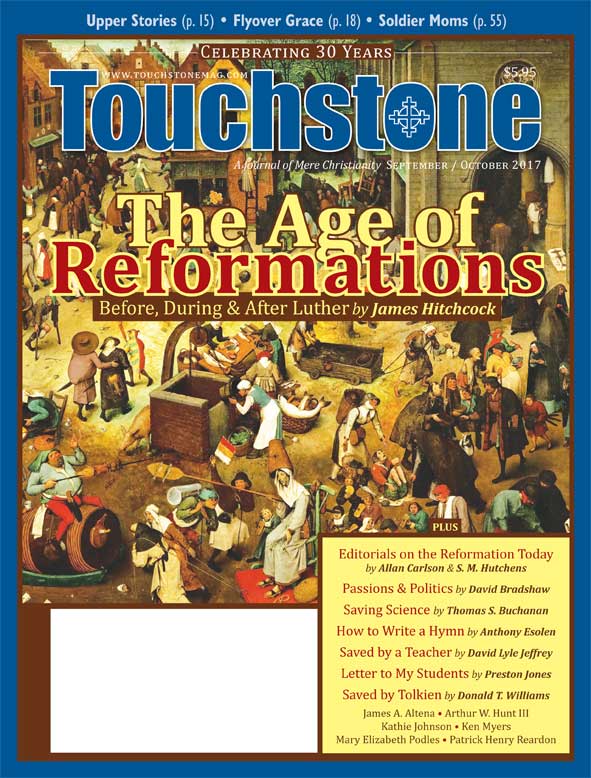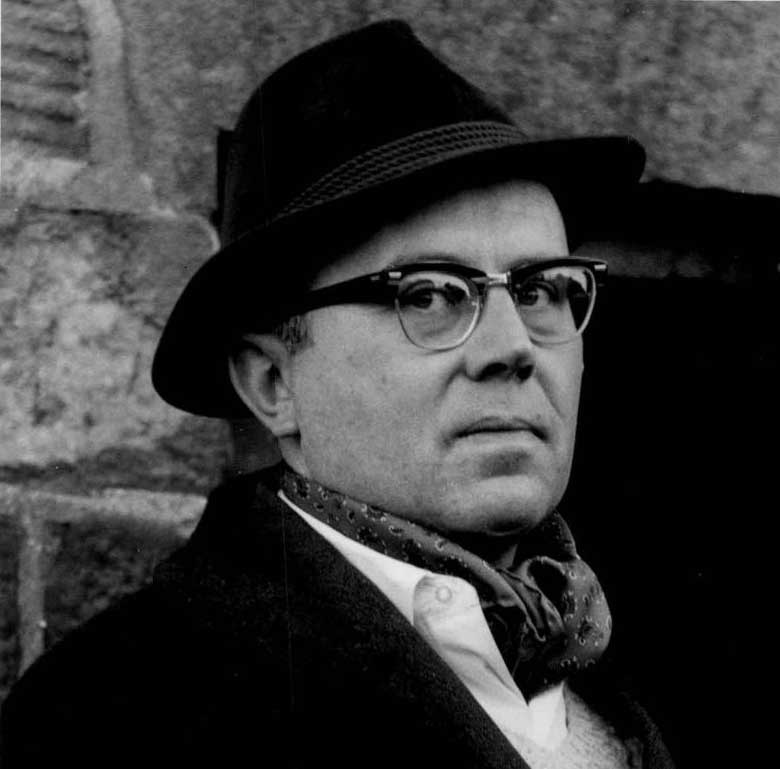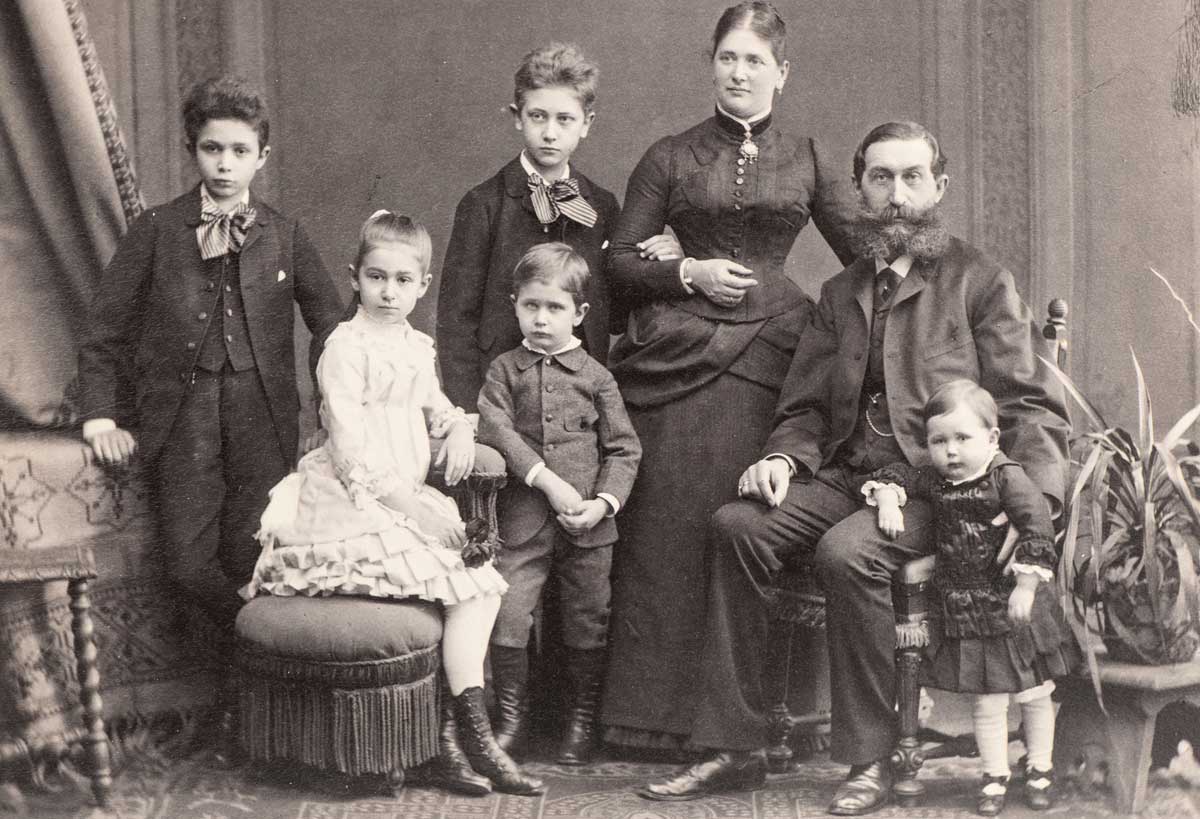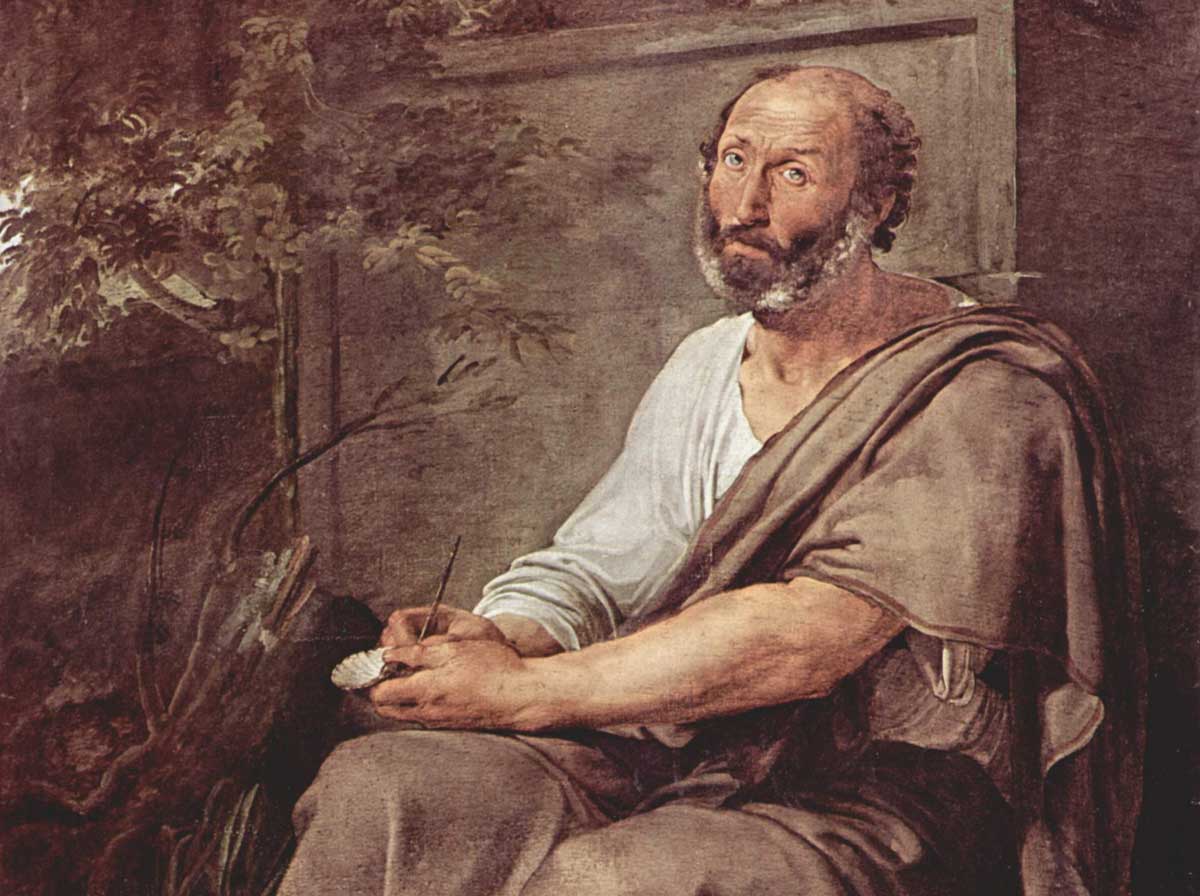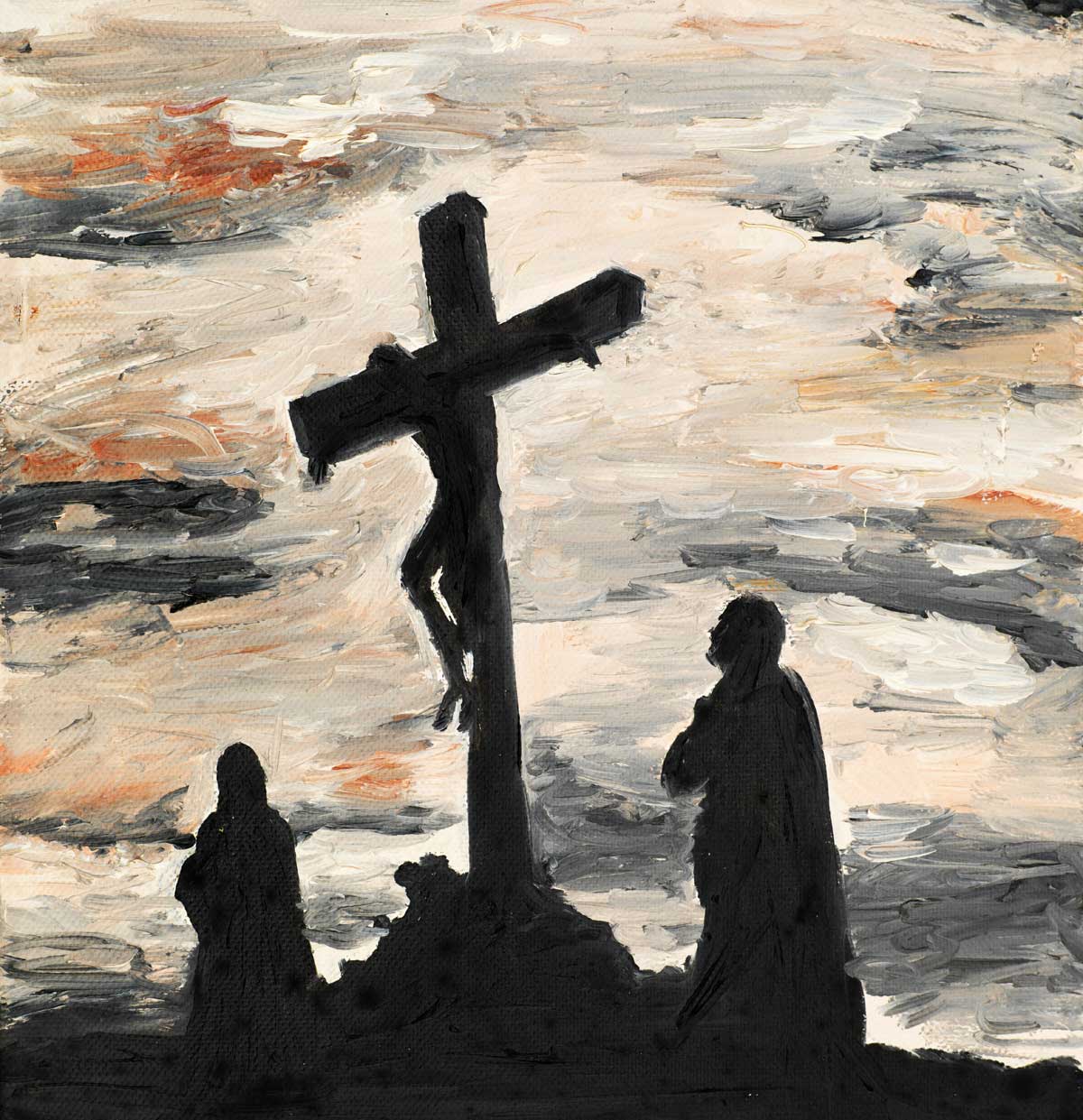Feature
Passions' Republic
The Christian Cure for What Ails Modern Politics
by David Bradshaw
We live in an age of deep cynicism toward politics. The victory of Donald Trump was a reminder that millions of ordinary voters have long felt slighted and ignored by the two major political parties. Whether Trump's victory will change this sense of alienation remains to be seen, but clearly there has been no healing of the bitter divisions within American culture. The strife is not merely political, but extends to matters of religion, morals, and even manners and entertainment. We in America simply do not like one another very much anymore, and as a result we can only view with suspicion a political process that aims, to the extent possible, to accommodate all comers.
It is plain that we face here a problem that is spiritual as well as political. The reason our politics has become poisonous is that, rightly or wrongly, we have lost respect for one another. How has this happened? How is it that a society that has achieved unprecedented heights of knowledge and prosperity cannot stop gnawing and biting at itself, like an animal infected with some horrible disease?
No doubt there are many answers. The one I would like to propose here goes back to the roots of modernity in the seventeenth and eighteenth centuries. It may seem surprising that a problem that has only recently—since the 1960s—come fully to light should have such deep roots. But there is a simple reason for this delay. For most of the modern era the churches effectively tempered the most corrosive aspects of modernity, neutralizing the worst effects of modern individualism through distinctively pre-modern practices of deference, self-denial, and voluntary submission. Beginning in the 1960s they abdicated that role. Today the imperial self conceived in the early modern era has been set free, and the consequences are visible all around us.
But I am getting ahead of my story. First we must understand how modernity had laid up within it from the beginning the engines of its own destruction. Only then can we see why the churches, and the churches alone, can provide the ballast that is necessary if our society is not to devolve into a state of near insanity.
John Locke: Theorist of the Independent Individual
We may begin with perhaps the greatest work of early modern political philosophy, John Locke's Second Treatise of Government (1689). Locke's central argument is well known: natural law teaches that "no one ought to harm another in his life, health, liberty, or possessions," and the proper role of government is to protect these rights. Famously, of course, the Declaration of Independence builds upon this argument. Years after the Revolution, Jefferson recalled that the Declaration was "intended to be an expression of the American mind" and that "all its authority rests on the harmonizing sentiments of the day, whether expressed in conversation, in letters, printed essays, or in the elementary books of public right, as Aristotle, Cicero, Locke, Sidney, &c." No theory of natural rights is to be found in Aristotle, Cicero, or Sidney, however, and it is primarily to Locke that this key element was due.
Locke's theory of property has been almost as influential. Locke postulates that in the state of nature, each man is free to appropriate natural goods subject to two limitations: that he take no more than he can use, and that he leave enough for others. Such use plausibly includes exchange with others. Eventually money is invented to facilitate exchange, and of course money, unlike organic goods, does not spoil. The requirement to take only what one can use thus becomes effectively a dead letter. Presumably (although Locke does not spell this out) there is also no possibility that accumulating money will fail to leave enough for others, for however much money one has, others remain free to barter as they choose. It turns out, then, that the state of nature, although it is "a state . . . of equality, wherein all the power and jurisdiction is reciprocal, no one having more than another," is also a state of sharp economic inequality. No one may complain of such a result, for by engaging in the use of money, all have given tacit consent to the inequality that results.
Locke sets forth his position with admirable clarity. To his credit, he recognizes that it is not enough simply to assert the existence of a natural law; he must argue for it. One of his key arguments is that since human beings are "all the workmanship of one omnipotent, and infinitely wise maker . . . they are his property, whose workmanship they are, made to last during his, not one another's pleasure." Having made this argument, Locke then immediately sets it aside. He does not ask the obvious question: if we are all God's property, ought not we to inquire what his will for us is—including whether he lays upon us a positive duty to help others? Such positive duties would certainly be important if they exist, but Locke simply ignores that possibility. This is a major defect of his argument.
Locke's theory of property also faces serious objection. The key claim is that all have given implicit consent to the unequal distribution of property merely by the use of money. Two simple rejoinders come to mind. First, there may be no practical alternative to the use of money because others may require it as a medium of exchange. If so, then how does using it commit one to accept whatever results it ultimately enables? We normally require some effective freedom in entering into an agreement in order to regard that agreement as binding; why should this case be different? Second, even if Locke were right about the state of nature, it is far from clear what that has to do with property within civil society. Once the social contract has been established, much that was legitimate in the state of nature becomes subject to regulation through majority rule. Why not property as well?
Finally, before leaving Locke we must note his rather surprising position on slavery. One might suppose that, since all have a natural right to liberty, slavery could have no place in the Lockean state. But one would be wrong. Any violation of the law of nature may justly be punished in a way that is roughly proportionate to the crime. This means that one who unjustly seeks the life of another thereby forfeits his own right to life, and with it (a fortiori) his right to liberty. That already seems rather questionable, but Locke goes on to add that the same is true of anyone on the wrong side in a just war. Hence captives taken in war, assuming one's own side to be just, may be made slaves.
Locke does not discuss how this rationale pertains to the actual slavery of his day, but it is not hard to fill in the gaps. Presumably, the obligation of ensuring that someone has been enslaved justly lies with the one who originally enslaved him. Commerce in general presupposes that items placed for sale may be assumed to have been lawfully acquired unless there is reason to think otherwise. Presumably, then, one may reasonably assume that slaves on the market were acquired justly. Locke himself invested in multiple slaving companies and helped oversee the commerce between Africa and America as a member of the royal Board of Trade. Although he does not address the issue explicitly, it may have been by reasoning such as this that he justified to himself his own involvement in the slave trade.
The point of these observations is not to denigrate Locke, nor even to deny the value of some of his ideas. It is to point out the large gap between his arguments and the vision of society they are invoked to support. The Lockean vision is of a society formed by independent, autonomous individuals who come together for strictly limited purposes, particularly that of protecting their natural rights. This is a vision that has had remarkable staying power—most obviously on the small-government right, but also on the no-one-can-tell-me-what-to-do-with-my-own-body left. It is an appealing vision, yet the more one inquires into its foundations, the more it seems to evaporate into thin air.
Rousseau: Theorist of Oppression
Locke's hubris eventually provoked a fateful reaction. The Discourse on the Origin of Inequality of Jean-Jacques Rousseau (1755) inverts virtually every key Lockean proposition. Whereas Locke's natural law is the eternal guidance given to us by God or reason (terms Locke treats as equivalent), Rousseau's is no more than our natural impulse to self-preservation and the avoidance of suffering. Crucially, Rousseau's natural law is descriptive, not prescriptive; it describes the "natural sentiment" we already possess and to which we only have to listen in order to be good.
Rousseau is, in general, deeply skeptical of reason. Speaking of the human soul within society, he laments that "instead of that heavenly and majestic simplicity whose mark its author had left on it, one no longer finds anything but the grotesque contrast of passion which thinks it reasons and an understanding in a state of delirium." "Passion which thinks it reasons" could well stand as Rousseau's definition of man within society. For Rousseau, the appropriate attitude to the claims of reason is suspicion. Rousseau's thought on this point is the fountainhead of what has come to be known as "the hermeneutics of suspicion" associated with Marx, Nietzsche, and Freud.
Rousseau deals with Locke's other great mainstay, God, equally brusquely. He does not deny the existence of God, nor even the relevance of theology to politics. But he defines his task in a way that makes God irrelevant. He explains at the outset of the work,
[R]eligion commands us to believe that since God himself drew men out of the state of nature, they are unequal because he wanted them to be so; but it does not forbid us from conjectures, drawn solely from the nature of man and the beings that surround him, concerning what the human race could have become, if it had been left to itself.
With this simple gesture God is ushered off-stage, never to return.
Having disposed of God and reason, Rousseau is free to set about his real task, that of offering a radically new imaginative vision. Whereas Lockean man is free, rational, and independent, Rousseauian man is a child who only comes to invent reason gradually in the course of seeking to gratify his passions. Since the invention is motivated from the beginning by the passions, it remains tinged by them even when it pretends to objectivity. The social contract, in particular, is something entirely different than it seems. Rousseau agrees with Locke that its explicit terms are the creation of a police and judiciary for the protection of life and property. But he sees these as merely a ruse put forward by the rich to enslave the poor. In his imaginative retelling, government was formed when the rich said to the poor, "Let us unite in order to protect the weak from oppression, restrain the ambitious, and assure everyone of possessing what belongs to him." The result, Rousseau dryly remarks, was that the poor "all ran to chain themselves, in the belief that they secured their liberty."
It is on this basis that Rousseau introduces perhaps his most important legacy for contemporary politics, the vision of society as a structure of oppression. If we were to examine human history in detail, he writes,
we would see the multitude oppressed from within as a consequence of the very precautions it had taken against what menaced it from without. We would see oppression continually increase, without the oppressed ever being able to know where it would end or what legitimate means would be left for them to stop it.
The work ends with an impassioned protest against the existing structures of society, marked as they are by "moral" (that is, social) inequality:
It follows that moral inequality, authorized by positive right alone, is contrary to natural right whenever it is not combined in the same proportion with physical inequality . . . for it is obviously contrary to the law of nature, however it may be defined, for a child to command an old man, for an imbecile to lead a wise man, and for a handful of people to gorge themselves on superfluities while the starving multitude lack necessities.
Rationalizing the Passions
The inconsistencies and non-sequiturs of Rousseau's -Discourse are so obvious as scarcely to need comment. Rousseau's story of the emergence of government from the state of nature is by his own admission a fiction, one with no more evidence to back it than his own fertile imagination. His sweeping condemnation of society as a structure of oppression depends upon that story, and so is equally baseless. It is particularly striking that, in order to justify his moral indignation, Rousseau has to abandon his attempted reduction of the law of nature to nothing more than the instinctual tendencies we share with animals. Mere instinct simply is not the sort of thing that is capable of making complex moral judgments. That requires reason, the very faculty that Rousseau had spent the early part of the treatise deriding. The tell-tale phrase, "the law of nature, however it may be defined," is an admission that Rousseau's condemnation of existing society is not based upon his own theory of natural law, but upon moral intuitions he assumes his readers have derived from some other source.
Yet for all its obvious faults, Rousseau's imaginative vision retains a powerful appeal. It is, after all, deeply flattering. It tells me that I am innately good and that any evil impulses I may feel are due to society. Even better, if I belong to a group that is oppressed, or feels itself to be so, then I have the additional assurance that whatever I and those like me suffer is not our fault. This gives whatever resentment we may feel a kind of philosophical imprimatur. Rousseau thus offers a heady mixture of group solidarity, freedom from personal accountability, and the assurance of righteousness. It is no wonder that the framework of oppression and liberation he laid out has become today the dominant way of thinking about society, used by all who can with any plausibility claim to be victims.
That being said, it must be admitted that the older and more staid vision of Locke is also, in its own way, deeply flattering. It tells me that I am free, independent, and the equal of all others in my fundamental rights and dignity. My freedom means that I am subject to no positive obligations other than those that I choose to take on, and that I can in principle walk away from almost any commitment. (Locke makes an exception for the obligations of parenthood, which he views as binding under natural law.) Most notably, my acquisitive impulses are natural and good, and no amount of wealth imposes upon me an obligation to help others.
Standing back from both visions, it is plain what they have in common. Both make use of specious reasoning to justify what are, from the classical and Christian standpoint, mere passions. In Locke the passions are greed, the desire for domination, and the sort of pride which says that no one can tell me what to do. In Rousseau they are envy, resentment, and the sort of pride which says that anything wrong in my life is someone else's fault. In each case, the governing passions of the vision remain invisible to its partisans while they are obvious to almost everyone else. That is why modern politics inevitably produces cynicism. Cynicism is the natural response when one sees people serving their passions in the interest of what they claim to be higher values.
Seeking a Better Way
Although cynicism is the natural response, it is not the right one. When the whole world seems to be mad, the right thing to do is to ask how things got that way and whether something is missing that could set them right. In the present case, that something is the ancient and medieval understanding of the passions. Within that earlier tradition, the passions were seen not as brute facts to be accepted and rationalized, but as the raw material in an ongoing process of personal transformation. Modern politics was born out of the rejection of that vision. It is small wonder that, having abdicated the task of educating and transforming the passions, we now find ourselves subservient to them.
In the case of both ancient and modern philosophy, the way the passions are understood is largely a function of the prior understanding of reason. The modern conception of reason was stated succinctly by Locke, who defines reason as the act (or, we may add, the faculty) of scrutinizing the contents of the mind and inferring from them truths about the world. Nothing about such a view gives reason any intrinsic moral authority or makes it distinctively fitted to govern the soul. After all, it is often the passions that in fact drive us, even when we think we are acting against them. David Hume, who took many of Locke's ideas to their logical conclusion, famously maintained that "reason is, and ought only to be the slave of the passions." Hume thus recognized the priority of the passions even before Rousseau, although it was left to Rousseau to translate that priority into the political sphere.
The classical view of reason was very different. One can already see it forming in Anaxagoras, for whom -intellect (nous) orders all things. Plato and Aristotle carried this initial impetus further. For Plato, intellect is both each person's truest self and the beneficent god, the Demiurge, who created and orders the cosmos. We achieve "assimilation to God" to the extent that our intellect is conformed to the eternal rational patterns imparted to creation by the Demiurge. (Plato remarks wryly that we are like plants walking around with our roots in the air, since that which roots us in the cosmos is intellect.) Aristotle elaborated this view via his thesis of the identity of intellect and its object. This is, roughly, that when our intellects successfully apprehend the structure of reality, they are not merely harmonized with that structure, but become identical with it, in the sense that they become local participations in the eternal divine Intellect. Crucially, for both Plato and Aristotle, the eternal structure thus apprehended is not only factual in the modern sense, but includes the recognition of what is good. To be fully rational is thus to be fully good; there is no possibility of a gap between fact and value.
The implications of this view for the soul are both straightforward and profound. As is well known, Plato distinguished three parts of the soul: reason, passion (or spirit), and appetite. Reason is far more than simply the faculty of inference, as with Locke; it is the faculty of apprehending and participating in the eternal divine structure of reality. The aim of ethical life is to subordinate passion and appetite to reason, thereby enabling them to participate in divine reason in the manner appropriate to them.
Plato's Republic is in large part simply an instruction manual for how such harmony is to be achieved. The process begins in childhood with music, poetry, and gymnastics—music and poetry to help reason learn to recognize what is noble, while gymnastics (or, as we might say, athletics) arouses the spirit and accustoms it to receive the direction of reason. Young adults then progress through the study of arithmetic, geometry, astronomy, and harmonics, studies that habituate them to value intelligible truth and to appreciate the good and the beautiful in many different forms. Those who excel advance to dialectic—roughly speaking, philosophical debate—and finally to fifteen years of military and public service. Only after this long, cumulative training are those who remain steadfast through many trials finally enabled, through the deeply engrained ordering of their soul, to behold the Good.
Like other aspects of the Republic, the rigid schematism of this program is probably exaggerated for dramatic effect. Nonetheless the core idea—that education can help habituate the soul to recognize and respond to the good—is fundamental for Plato, and indeed the entire classical tradition. Aristotle carried further Plato's emphasis on habituation, arguing that the virtues are a kind of habit and so are acquired, like any habit, by repeatedly performing the corresponding act. One must begin by facing down the bully on the playground to become capable of facing death on the battlefield. As with Plato, such habituation is also a progress into knowledge. One who has acquired the virtues comes to take pleasure in acts that truly are pleasant by nature, rather than those that seem pleasant but ultimately turn bitter. The long process of learning to be good is, in other words, also that of coming to see things as they truly are.
The Christian Spiritual Disciplines
From a Christian perspective, there is much here that is true and salutary. Perhaps the most crucial bridge between the philosophers and the gospel was the Johannine teaching that Christ is the Logos. As "the true Light which lighteth every man," the Logos is present not only in the cosmos at large and in the person of Christ, but in the human soul. This fit precisely the philosophical understanding of human reason as a participation in the divine reason. The difference, of course, was that, in the Christian view, the divine reason had become incarnate.
The Incarnation opened a door through which the classical education and transformation of the passions, previously available only to the elite through philosophy, became available to all. The palpable love to be found within the new community of the ekklesia, and above all the sacrifice of the martyrs, offered proof that even the uneducated could attain a kind of heavenly virtue. St. Justin Martyr, who had been trained as a philosopher, described succinctly both the old and the radically new: "No one trusted in Socrates so as to die for his doctrine, but many now trust in Christ, who was partially known even by Socrates—for he was and is the Logos that is in every man."
Above all, it was within monasticism that Christians appropriated and transformed the classical disciplines of the passions. There is, unfortunately, still a tendency to view monasticism as did Luther, as a form of works righteousness aimed at earning salvation. When it comes to ancient monasticism at least, nothing could be further from the truth. Perhaps the simplest way to view ancient monasticism is as the utmost extremity of self-giving. The monks took to heart the commandment of Christ to the rich man, to "sell all you have and give to the poor," and "come, follow me." They also took to heart the saying that you must be born again; they understood it to refer not to a one-time experience, however, but to the continual practice of letting go of all things in order to make room for new life.
The monastic disciplines include much that, even today, one can recognize as deeply consonant with a Christian way of life: fasting, vigils, constant prayer, immersion in Scripture, confession of sins, hospitality to strangers, not judging others, obedience to an elder, the acceptance of insults, the patient endurance of suffering, learning to be content with silence and solitude. These are very different from the disciplines of classical philosophy. In the monastic tradition, taming the passions is seen less as a way of enabling the entire soul to participate in divine reason (laudable though that might be) than as a way of transferring the very locus of one's identity from self to God. Spiritual vistas were thereby opened up that were unknown to the ancient philosophers.
Yet there was continuity as well, for the monastic life, like classical philosophy, presupposes an ontology in which the divine is at the heart of the human. In an early monastic rule by St. Basil the Great the question is posed, "Speak to us first, therefore, of the love of God; for we have heard that we must love Him, but we would learn how this may be rightly accomplished." Basil replies:
The love of God is not something that is taught, for we do not learn from another to rejoice in the light or to desire life, nor has anyone taught us to love our parents or nurses. In the same way and even to a far greater degree it is true that instruction in divine law is not from without, but, simultaneously with the formation of the creature—man, I mean—a kind of rational force is implanted in us like a seed, which by an inherent tendency impels us toward love. This germ is then received into account in the school of God's commandments, where it is wont to be carefully cultivated and skillfully nurtured and thus, by the grace of God, brought to its full perfection.
For Basil the monastic disciplines are a kind of "school" that directs our innate love of beauty and goodness toward its proper end. Fasting, vigils, and prayer, for example, take the natural love of comfort and direct it instead toward God. Hospitality teaches one to seek the good of others before one's own, while confession teaches one to blame only oneself, never others. The habit of not judging and of accepting insults offers the very wounds one has suffered as a sacrifice before God. Through such practices, repeated daily and habitually, the love of God that is innate in all of us can begin to blossom.
Why Only the Churches Hold the Cure
The monastic disciplines are, of course, no more than an extreme form of those to which all Christians are called. Yet without the monastic presence they are easily lost. In the ancient Church, monasticism served as a kind of leaven, a permanent transformative element that revealed new patterns of holiness. Soon monastic practices—such as lengthy periods of fasting, vigils, and regular confession—found their way into the life of the laity. Of course they had to be accommodated to the conditions of life in the world, and inevitably abuses arose. Even so, for most of Christian history, the prominence of these practices as a cultural norm provided a check to the untrammeled reign of the passions.
Today they survive in only a vestigial form, having been relaxed or redefined almost to the point of non--existence. Yet where they are still practiced they are just as life-giving as ever. In my own experience, perhaps their most surprising effect has been the way they rivet one's life to the liturgical calendar. Periods of fasting and feasting, of penitence and joy, come to shape the rhythms of life in a way determined not by one's own moods or desires, but by the independent vitality of the Church. Even when an act is private, as with confession, it is still something done as part of a common journey with others. The power of the ancient disciplines is most vividly apparent at the end of the Lenten fast, when young and old, the devout and the casually observant alike, are swept up in anticipation of the feast. It is a marvel to see the excitement of the children at these times, as it is also to see that of the otherwise jaded and world-weary.
I hope it will now be plain why our only hope, even at the merely political level, lies with the churches. Rational discourse is powerless against the passions. In a way, the more cogent such discourse is, the more it is threatening and therefore to be feared. A person in the grip of the passions hears in any opposing argument merely the message, You are wrong. If anything, this simply inflames him even more. What such a person needs is not to be refuted, but to be shown by living example that the freedom we all innately desire is possible. Even just to know that others are fighting against the passions can sometimes have a powerful effect. It is one thing to be a slave; it is quite another to think that all are slaves.
I hope it also will be plain why only the churches can take on this fight. No one can battle against the passions alone. Granted, there have been saintly hermits, but upon examination it turns out that they, too, thought of themselves as following a trail that had been blazed by others. It would seem to be the very nature of the abnegation of self-will that it requires direction from without—not to mention the continual check upon self-deception that is provided by practices such as confession. To fight alone is to run the risk of what St. Paul calls ethelothreskeia, a willful and self-chosen form of worship (Col. 2:23). Even success merely exhibits to oneself one's own inner strength. That is why it is necessary to fight in ways and at times dictated by others, alongside children, the derelict, and casual believers—all who by their very weakness display God's strength.
Only the churches have it in their power to be communities of those who struggle together for the healing and transformation of the passions. Yes, it is true that for many churches today, such a role would seem almost unimaginable. Yet God is known for what he can do with the weak and the timid; it even seems to be his specialty. •
David Bradshaw is a Professor of Philosophy at the University of Kentucky and the author of Aristotle East and West: Metaphysics and the Division of Christendom (Cambridge University Press), as well as numerous articles on ancient, medieval, and patristic philosophy. He and his wife attend St. Athanasius Orthodox Church in Nicholasville, Kentucky.
subscription options
Order
Print/Online Subscription

Get six issues (one year) of Touchstone PLUS full online access including pdf downloads for only $39.95. That's only $3.34 per month!
Order
Online Only
Subscription

Get a one-year full-access subscription to the Touchstone online archives for only $19.95. That's only $1.66 per month!
bulk subscriptions
Order Touchstone subscriptions in bulk and save $10 per sub! Each subscription includes 6 issues of Touchstone plus full online access to touchstonemag.com—including archives, videos, and pdf downloads of recent issues for only $29.95 each! Great for churches or study groups.
Transactions will be processed on a secure server.
more on america from the online archives
more from the online archives
calling all readers
Please Donate
"There are magazines worth reading but few worth saving . . . Touchstone is just such a magazine."
—Alice von Hildebrand
"Here we do not concede one square millimeter of territory to falsehood, folly, contemporary sentimentality, or fashion. We speak the truth, and let God be our judge. . . . Touchstone is the one committedly Christian conservative journal."
—Anthony Esolen, Touchstone senior editor





